News archive 2017

Research shows driving factors behind changes between local and global carbon cycles
Research has provided a fascinating insight in the quest to determine whether temperature or water availability is the most influential factor in determining the success of global, land-based carbon sinks.

Role of terrestrial biosphere in counteracting climate change may have been underestimated
Research suggests the capacity of the terrestrial biosphere to absorb carbon dioxide may have been underestimated in past calculations due to certain land-use changes not being fully taken into account.

Intensive animal production may boost flu pandemic threat
Mass livestock production is driving molecular changes in diseases that could lead to human pandemics, according to an expert from the University of Exeter.

Low level of oxygen in Earth’s middle ages delayed evolution for two billion years
A low level of atmospheric oxygen in Earth’s middle ages held back evolution for two billion years, raising fresh questions about the origins of life on this planet.
_feat_218x115.jpg)
Increasing water table in agricultural peatland could cut UK greenhouse gas emissions
Increasing the water table could help to slow down global warming, boost crop yields and preserve peat soils, according to a new study.
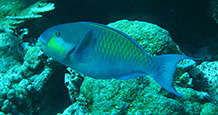
Impacts of mass coral die-off on Indian Ocean reefs revealed
Warming seawaters threaten the stability of tropical coral reefs, with potentially devastating implications for many reef species and the human communities that reefs support.

Watching birds near your home is good for your mental health
People living in neighbourhoods with more birds, shrubs and trees are less likely to suffer from depression, anxiety and stress, according to research.
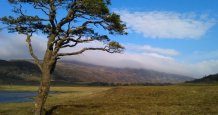
Caledonian forests threatened by climatic change
Efforts to conserve the remaining fragments of the great Forest of Caledon in Scotland may be doomed to fail unless a new strategy is rapidly adopted, new research suggests.

Ancient peoples shaped Amazon rainforest
The Amazon rainforest was shaped by ancient people who lived there, new research reveals.
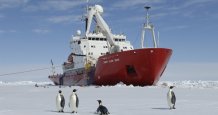
Extensive ice cap once covered sub-antarctic island of South Georgia
A new study reveals the sub-antarctic island of South Georgia – famous for its wildlife – was covered by a massive ice cap during the last ice age.

Tropical rainstorms and a wobbly rope bridge in the cloudy treetops at the Eden Project’s new Weather Maker
Visitors to the Eden Project can now trek across an aerial rope bridge, shelter from tropical rain and travel through clouds thanks to the opening of a thrilling new rainforest walkway.

Exeter Geography department gets gender equality award
The University of Exeter’s Geography department has earned an Athena SWAN silver award for gender equality.

Brexit negotiations crucial for future UK energy supplies and nuclear safeguards
Energy policy offers the UK and EU an important opportunity to develop new models of partnership and common ground imperative to the UK’s future, according to a new Chatham House paper.

Jurassic drop in ocean oxygen lasted a million years
Dramatic drops in oceanic oxygen, which cause mass extinctions of sea life, come to a natural end – but it takes about a million years.
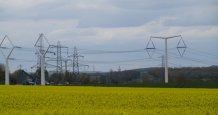
Geographers to walk the route of new power line
A group of geographers will walk along the route of proposed new electricity pylons to discover how local people are coming to terms with the impact of the construction on the landscape.

Antarctica ‘greening’ due to climate change
Plant life on Antarctica is growing rapidly due to climate change, scientists have found.

Global climate change story map wins award
A web app created to share the stories from an online climate change course which attracted people from more than 160 countries has won an award.

Planting trees ‘not viable alternative’ to cutting emissions
Growing plants to capture CO2 is not a viable way to curb climate change, a new study shows.
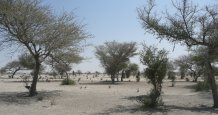
Summer rainfall in vulnerable African region can be predicted
Summer rainfall in one of the world’s most drought-prone regions can now be predicted months or years in advance, climate scientists at the Met Office and the University of Exeter say.

Public confused by climate change messages
Experts, charities, the media and government confuse the public by speaking “different languages” on climate change.

Top scientist to talk climate change at Glastonbury
Glastonbury festivalgoers can look forward to a heady mix of Ed Sheeran, Foo Fighters, Katy Perry – and a lesson on climate change from a top scientist.

'Who Made My Clothes?' - Free online Fashion Revolution course starts 26th June
Fashion Revolution, the global movement calling for greater transparency, sustainability and ethics in the fashion industry, is launching its first free online course next Monday, 26th June 2017.

Monitoring changes in wetland extent can help predict the rate of climate change
Monitoring changes to the amount of wetlands in regions where permafrost is thawing should be at the forefront of efforts to predict future rates of climate change, new research shows.

Sea temperature changes contributing to droughts
Fluctuations in sea surface temperature are a factor in causing persistent droughts, research suggests.

Supporting coastal communities in Southeast Asia
A group of UK researchers have been awarded funding to help support coastal communities in East and South East Asia that depend on healthy and diverse marine ecosystems.

Commuters could help cut Exeter congestion
City commuters could play a pivotal role in helping curb traffic congestion in and around Exeter, thanks to a pioneering initiative.

Smart doll uses ‘espionage’ powers for education
A controversial “smart doll” has been reprogrammed to enlighten adults rather than potentially spying on children.

Community support for protection of the Great Barrier Reef
Who cares about the Great Barrier Reef? Many people, according to a paper published in the journal Proceedings of the National Academy of Sciences.
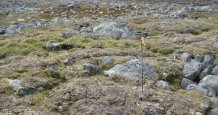
Cold region ‘tipping point’ now inevitable
The decline of cold regions called periglacial zones is now inevitable due to climate change, researchers say.
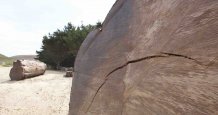
Ancient tree reveals cause of spike in Arctic temperature
A tree preserved in a New Zealand peat swamp for 30,000 years has revealed new information about the last ice age.

Food Exeter strategy promotes healthy, sustainable city
A new strategy has been published to promote sustainable and healthy food for all in Exeter.
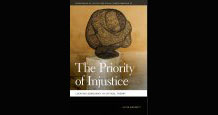
Exeter Geography Professor releases new book examining the reality of modern political action.
The romantic belief that radical political change is driven by protests in the streets and other expressions of authenticity is “poorly suited” to understanding the reality of contemporary political action, a new book argues.

Climate change impacts already locked in – but the worst can still be avoided
Some impacts of global warming – such as sea level rise and coastal flooding – are already locked in and unavoidable, according to a major research project.

Building empathy between planners and migrants for sustainable cities
Researchers will engage new migrant populations and planners in Bangladesh’s second city to build human security into planning processes.

New CO2 device for unmanned ocean vessels
Carbon dioxide in remote parts of the world’s oceans will be measured by a new instrument being developed by scientists.

Artificially cooling planet “risky strategy”, new research shows
Proposals to reduce the effects of global warming by imitating volcanic eruptions could have a devastating effect on regions prone to either tumultuous storms or prolonged drought.
